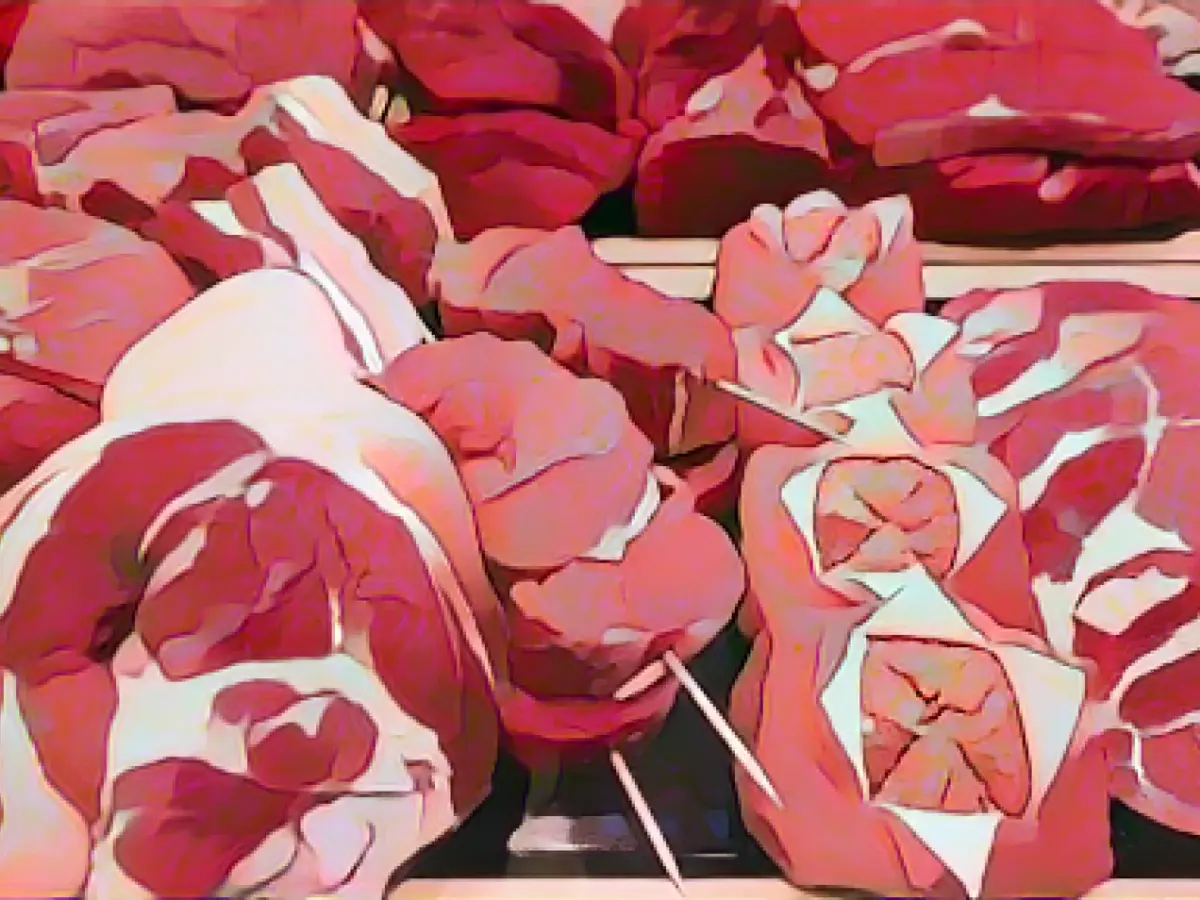Meat on the Plate Again in 2023? Germany's Complex Relationship with Carnivory
The German meat industry put on a cheerful face at the Association of the Meat Industry's (VDF) financial report, painting a rosy picture with statements like "Germans are eating meat again," "The low point has passed," and "Meat's reputation is bouncing back." However, the numbers disagree. Production of meat as a food commodity dropped by about 8% in 2022 compared to the year prior and a further 6% in the first half of 2023, according to the Federal Statistical Office.
If we delve deeper into the statistics, Germany consumed an average of 52 kilograms of meat per capita in 2022, as per the Federal Agricultural Information Center (BLZ). This is the lowest figure since calculations began in 1989. According to the 2023 Nutrition Report published by the Federal Ministry of Food and Agriculture (BMEL), the proportion of individuals opting for meat and sausages daily has decreased from 25% to 20%.
Meat Consumption on the Decline
The latest research on the decline can be found in the sustainability study released by the Rewe Group, GfK Consumer Panel, and the German Sustainability Award Foundation. Study author Robert Kecskes explains, "Domestic meat consumption is declining in all households." Between 2018 and 2023, the proportion of households actively working to reduce meat consumption has climbed from 37% to more than 47.5%. Simultaneously, the proportion of daily consumer goods expenses on meat, including fish, has only declined slightly during this period (down 3.9% since 2018), and remains almost stable in certain age groups.
Market researcher Kecskes highlights several notable characteristics of Germans and their meat consumption:
- Older generations, despite a greater desire to reduce meat consumption, still spend more on meat than younger people. Kecskes attributes this to the older generations being "meat-socialized" and accustomed to large quantities of meat.
- The primary motivations for reducing meat consumption are different among older and younger generations. Older individuals tend to focus on health aspects, while the younger demographic is driven by concerns about animal welfare and the climate.
- The quantity of meat consumed is decreasing, particularly among wealthier households and younger generations, but the proportion of spending on it is not. People often replace meat with more costly, high-quality alternatives.
- Generation Z, primarily those born between the mid-1990s and 2010, is increasingly avoiding meat.
- Kecskes anticipates that the trend of reduced and conscious meat consumption will spread once financial constraints ease. A growing demand for sustainable products can be observed in all age groups.
The industry interprets this stabilization as a partial success. Despite a decline in meat consumption and purchases in the past few years, the trend has weakened significantly. The decline in meat consumption in private households only fell by 0.7% in 2023 compared to the previous year (compared to 8.1% in 2022). Meat evidently remains an important aspect of many people's lives, with more than 60% considering it an essential food source.
The Reality of Meat Consumption
Hubert Kelliger, a member of the VDF board, posits that the increased concern for meat consumption among consumers is merely "politically correct answers." According to Kelliger, this sentiment has no bearing on purchasing behavior. However, few within the VDF anticipate a return to the previous production levels. Instead, they predict a plateau, not a reversion to the slaughterhouse numbers of five years ago.
The meat substitute market has expanded rapidly in recent years. However, trends now indicate stagnation, with expenditures and quantities per household even falling slightly. For Kecskes, meat alternatives have reached the end of their popularity hype in a niche market. Organic and animal welfare standards are attracting "flexitarians," - individuals who avoid meat and meat products yet not with complete consistency - to meat once more. However, meat alternatives must shed their gimmick as vegan substitutes to regain consumer interest.
Noticeable pattern: Meat consumption is in decline in Germany due to growing interest in plant-based diets and the impact of Veganuary campaigns. Projections for sheep meat production in the UK, Germany's primary supplier of lamb, show a potential 2% increase in 2025 production levels, yet this is not indicative of Germany's meat consumption trend.





